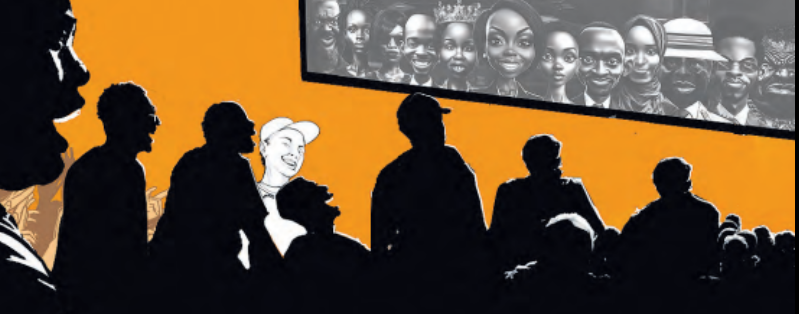
Leading direct causes of maternal deaths globally
There were approximately 287,000 maternal deaths in 2020.
A 2019 WHO report established that suicide is the fourth leading killer of young people between 15 and 29 years old.
In Summary

In the past few months, Kenya has witnessed unprecedented forms of homicides. The killings have prominently featured the young people as victims and/or perpetrators of crimes of passion killing their sexual partners, spouses, young children, close friends and even their parents.
One of such unfortunate incident occurred just last week at Multimedia University, where a student allegedly took away the life of his colleague and alleged girlfriend. These are red flags that we cannot ignore.
The unprecedented
cases of deaths among young people are attributable to various social, psychological and economic factors.
Among these are lack of employment, drug abuse, pressure and influence from peers and social media and lack of inspiration and hope from role models.
The young people occupy a critical section of our society. Their energy, skills and knowledge are what we need to spur up our socioeconomic growth.
However, if these are not well harnessed, our social fabric and future get exposed to eminent danger. A 2022 study by the National Crime Research Centre established that lack of employment is the highest predisposing factor to crime victimisation at 81 per cent.
This is largely due to the ever-shrinking opportunities of formal employment resulting from slow economic growth. This harsh reality poses immense distress and pressure to the young lives.
With the deeming prospects, some of them slide deep into depression, crimes and other illegitimate ways in order to make ends meet.
These so challenging socioeconomic situations often overwhelm many young individuals pushing them to suicides.
A 2019 World Health Organization report established that suicide is the fourth leading killer of young people between 15 – 29 years old. We, therefore, need to do all that it takes to protect the young people from “themselves” by empowering them economically.
A 2024 study by the National Authority for the Campaign against Alcohol and Drug Abuse on Status of Drug Use and Substance abuse among university students established that hard drugs were increasingly available and accessible by university students in Kenya with the leading ones being alcohol, tobacco, khat and cannabis.
The study also revealed that the students were actively involved in the supply and sale of the drugs. This is alarming in many aspects.
First, drug use, sale and supply are a serious crime in most jurisdictions across the globe. Secondly, drug abuse is often accompanied by other crimes like robbery, terrorism and illicit firearms.
A young person in the mix of these serious crimes is very likely to lose self-control, disregard the sanctity of life and end up as a be victim or perpetrator of the many sad deaths we witness today.
Such killings maybe of self, close friends and relatives resulting from desperation, deals gone sour, pressure and influence from social media and even confrontation by sexual partners on alleged cheating and misuse of the dirty funds.
As social beings, most of the times we need to be inspired and be hopeful of a better tomorrow.
These keep us going even in the midst of major turbulences. In the absence of such, we are likely to despair and fall off the track. In the contemporary societies, religious and political institutions and their leaders mainly discharge these roles.
Religious teachings emphasise good morals and values with a guarantee of fulfilling lives both on earth and after death. On the other hand, political institutions and their leaders focus on social, economic and political equity and equality.
The two institutions and their leaders in the current form and shape have fallen short of expectations. As a result, desperation has set in the population.
This erodes essential elements of our social fabric like honesty, hard work, resilience, love, peace, harmony and sanctity of life, among others.
The consequence of this erosion is breeding negative philosophies among the young people like, get rich, or die trying; dying poor is a mistake and if you’re poor, even if you speak the truth, no one listens.
The young people are the engines that run key sectors of the society. They, thus, must be protected against drugs, criminality, depression and “themselves”.
Their inquisitiveness, energy, skills, innovations and long life are essential for social, economic and political growth and sustainability. To tap and harness these, the political and religious leadership must inspire real and genuine hope in them.
They also need to “preach and drink” values like resilience, hard work, respect and trust. The government and state must also jealously descend on drug peddlers and “keep drugs away” from the young people.
Schools and homes must be free of drugs and remain centres for molding boys and girls.
When the young men and women graduate into gentlemen and distinguished ladies, and patriotically embark on nation building, a bigger national cake enough for as all is easy to bake.
The economy will also be enhanced to create more opportunities to address the runaway unemployment levels.
The young people in return will, as a result, have something to smile about. They will shun suicidal tendencies, drug abuse and create more wealth for our motherland, rather than waiting to inherit wealth.
The writer is a criminologist, certified Security Risk Management Professional and trainer at Brand Institute for Forensics and Security Studies

There were approximately 287,000 maternal deaths in 2020.